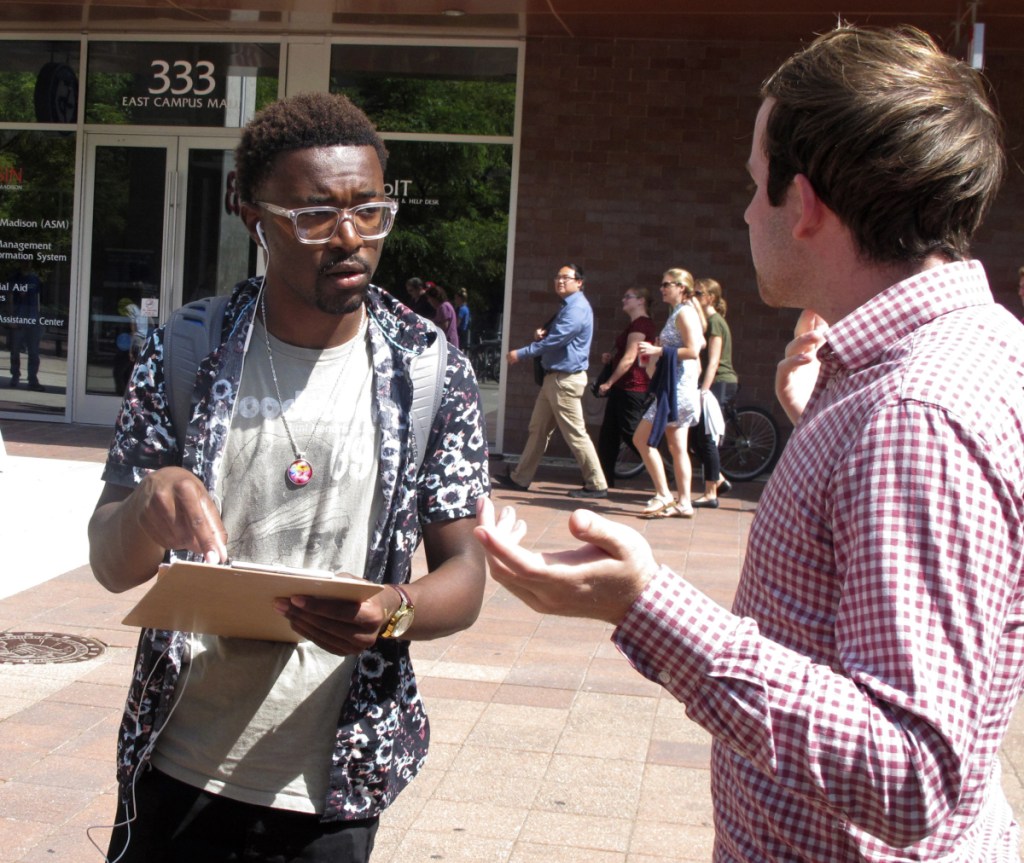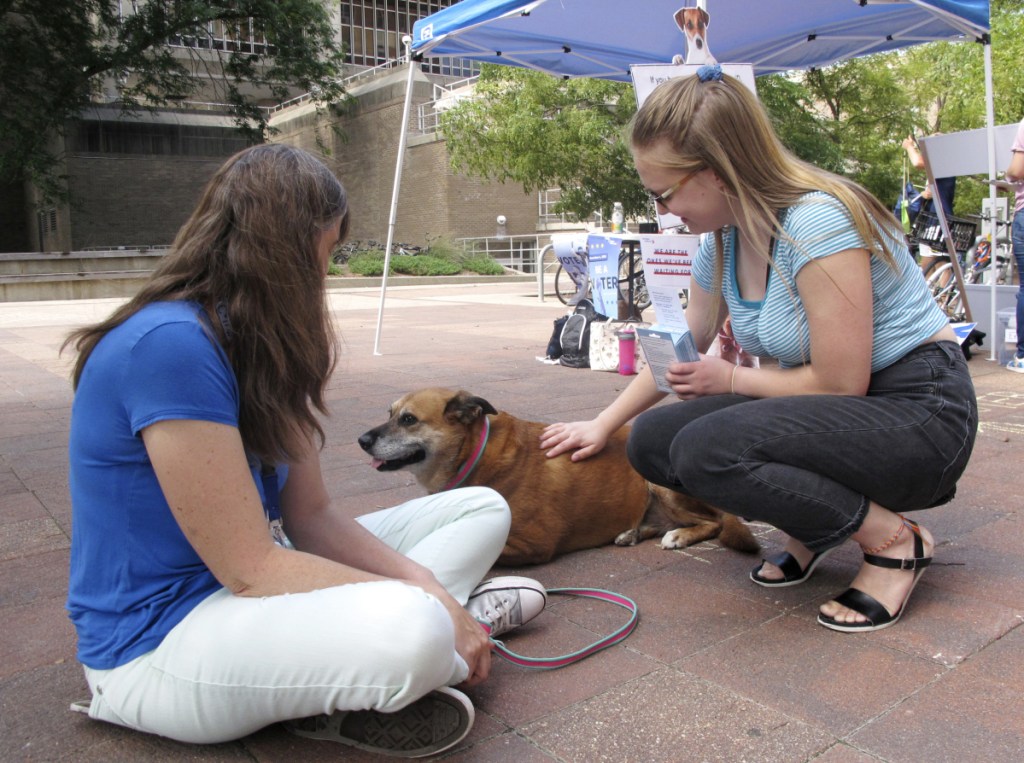MADISON, Wis. — Democrats know who their voters are. They just have to figure out how to get them to the polls in November – and that’s where the puppies come in.
Students returning to the University of Wisconsin-Madison campus this summer were greeted by therapy dogs for petting. Those lured by the chance to ruffle a dog’s ears were then asked to register to vote – a “Pups to the Polls” gimmick that was just one of several similar events being staged in 11 battleground states by the liberal group NextGen America.
Young people tend to vote for Democrats, but they also tend stay away during midterm elections. It’s a perennial frustration for the party – one it is trying to overcome as it seeks to take control of Congress.
NextGen America, formed by billionaire activist Tom Steyer, hopes to be a game changer. Steyer is investing more than $30 million in what’s believed to be the largest voter engagement effort of its kind in U.S. history.
The push to register and get pledges from college students to vote is focusing on states such as Wisconsin, Virginia, California and North Carolina with competitive races for Congress, U.S. Senate and other offices.
NextGen sees young voters such as Kellen Sharp as key to flipping targeted seats from red to blue.
“The outcome of this election definitely affects us,” said Sharp, an 18-year-old freshman from Milwaukee who stopped to register during the dog event the week before classes started. “I’m just excited to have a voice and say something.”
A poll this summer by the Associated Press-NORC Center for Public Affairs Research and MTV found that most Americans ages 15 to 34 think voting in the midterm elections gives their generation some say about how the government is run. The poll found young people eager to vote for someone who shared their political views on issues such as health care and immigration policy. They expressed far less excitement about voting for a candidate described as a lifelong politician.
“If we all vote, we can make a change,” said 20-year-old Grace Austin, who stopped to pet the dogs at the Wisconsin event and wound up registering to vote.
Austin and other college students who registered said they feel like their friends are more interested in politics than ever before – boosting hopes of Democrats trying to reverse the trend of declining youth participation in midterm elections.
“We want them to know they need to show up and when they do, we will win,” said NextGen’s Wisconsin director George Olufosoye. “We want them to know they have power.”
They certainly have the numbers.
Since the last midterm election in 2014, 15 million post-millennials – those between the ages of 18 and 21 – have become eligible to vote.
Send questions/comments to the editors.



